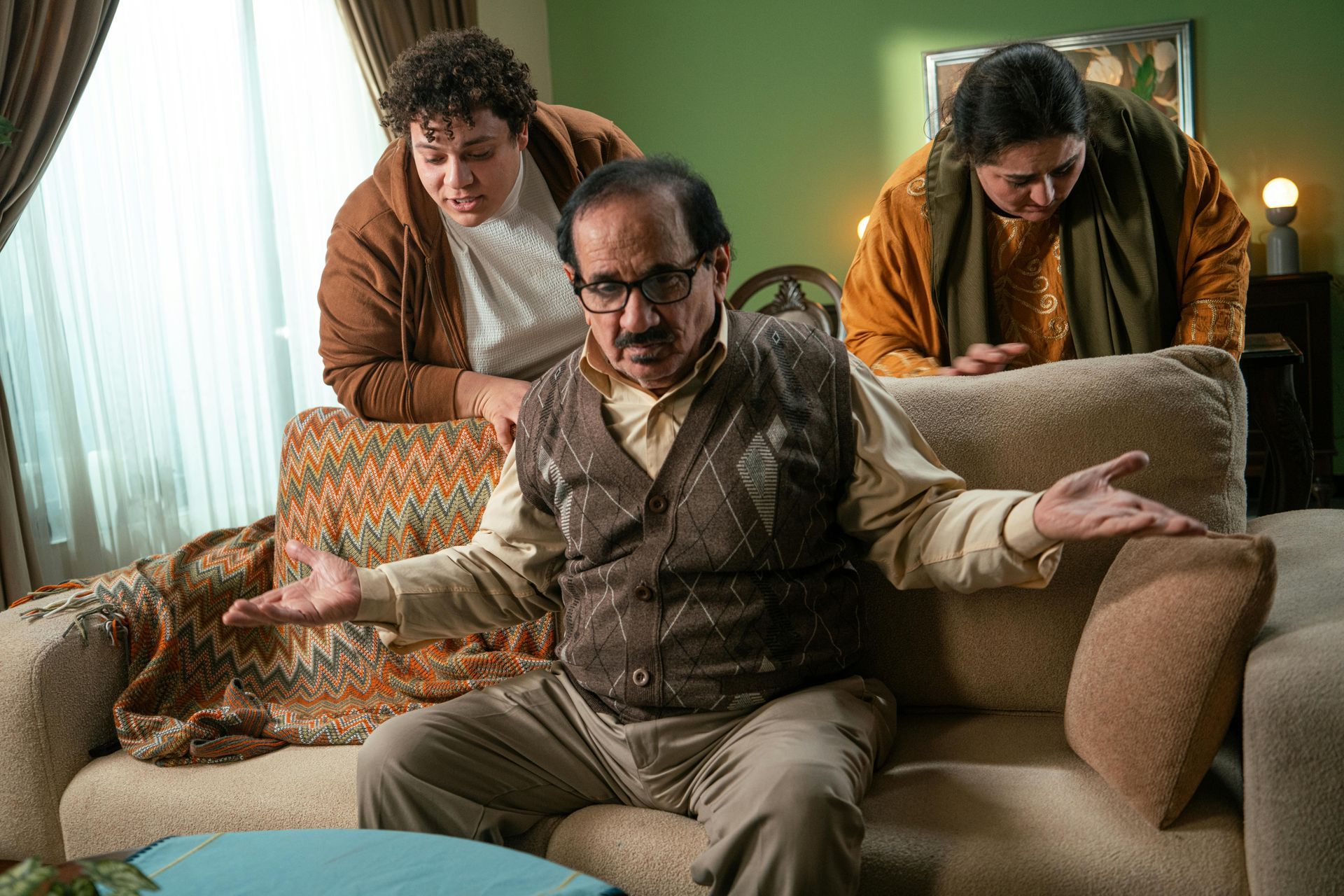Navigating the Storm: How to Contest a Will in Douglasville Probate Court
The passing of a loved one is a deeply emotional time, often compounded by the legal complexities of estate administration. In some situations, questions or concerns may arise about the validity of the deceased's will. If you find yourself in this challenging position in Douglasville, Georgia, understanding how to contest a will is crucial. This blog post aims to shed light on this intricate legal process, specifically within the context of the Douglasville Probate Court.
It's important to remember that contesting a will is a serious legal undertaking with specific requirements and potential consequences. This information is for general guidance only and should not be considered legal advice. Always consult with an experienced Douglasville probate litigation attorney to discuss the specifics of your situation.
What Exactly Does "Contesting a Will" Mean in Georgia?
In Georgia, contesting a will means formally challenging its legal validity in probate court. This formal objection is known as a "caveat." The person filing the caveat (the "caveator") essentially argues that the will presented to the Douglasville Probate Court should not be accepted as the true and final testament of the deceased (the "testator"). If the contest is successful, the court may invalidate the will, in whole or in part. This could lead to an earlier valid will being probated or, if no valid will exists, the estate being distributed according to Georgia's intestacy laws (laws that dictate how property is divided when there's no will).
Who Has the Legal Right (Standing) to Contest a Will in Douglasville?
Not just anyone can contest a will. Under Georgia law, you must have "standing," meaning you must be an "interested party." Typically, interested parties include:
- Heirs-at-law: These are individuals who would inherit from the estate under Georgia's intestacy laws if the will were invalid (e.g., a spouse, children, or other close relatives).
- Beneficiaries in a Prior Will: If you were named as a beneficiary in a previous, valid will of the deceased, and the current will either disinherits you or reduces your share, you likely have standing.
- Beneficiaries in the Current Will (in some circumstances): While less common, a beneficiary in the current will might contest it if, for example, they believe a specific provision adversely affecting them was the result of undue influence aimed at benefiting another party.
- Creditors of the Estate (in limited situations): In some cases, creditors might have standing if the will's provisions could improperly affect their ability to recover debts owed by the estate.
The Douglasville Probate Court will require you to demonstrate your legal standing before a will contest can proceed.
Recognized Grounds for Contesting a Will in Georgia
Simply being unhappy with the terms of a will is not sufficient grounds for a contest. Georgia law recognizes specific legal reasons for challenging a will's validity. Successfully contesting a will in the Douglasville Probate Court hinges on proving one or more of the following:
- Lack of Testamentary Capacity:
This is one of the most common grounds. It means that at the time the will was signed, the testator did not possess the mental ability to understand:
- That they were signing a document that would dispose of their property upon their death.
- The general nature and extent of their property.
- Who their natural beneficiaries were (i.e., their family members or those who would typically inherit). Conditions like advanced dementia, Alzheimer's disease, severe mental illness, or being under the influence of drugs or alcohol at the time of signing could contribute to a lack of capacity. Evidence such as medical records and witness testimony is crucial here.
- Undue Influence: This occurs when someone exerts such strong pressure or manipulation over the testator that it overcomes their free will, essentially forcing them to make a will (or include provisions) that they would not have made otherwise. The influence must be so significant that the resulting will reflects the influencer's wishes rather than the testator's true desires. Proving undue influence can be challenging and often requires showing a confidential relationship between the testator and the influencer, and that the influencer actively procured the will.
- Fraud or Forgery:
- Fraud: This involves deceiving the testator into signing the will. For example, the testator might have been misled about the contents of the document they were signing or tricked into believing false information that influenced their decisions in the wil
- Forgery: This is when the will itself, or the testator's signature on it, is fake. This could involve someone forging the testator's signature or creating a completely fabricated document. Handwriting analysis and expert testimony are often key in forgery cases.
- Improper Execution or Attestation: Georgia has strict legal formalities for how a will must be signed and witnessed. Failure to adhere to these requirements can invalidate the will. These generally include:
- The will must be in writing.
- The testator must sign the will (or someone else can sign on their behalf in their presence and at their express direction).
- The will must be attested to and signed by at least two competent witnesses, who signed in the testator's presence. If, for instance, there weren't two valid witnesses, or they didn't sign in the testator's presence, these are grounds for a contest. The Douglas County Probate Court will examine the execution carefully.
- Revocation: A will can be contested if it can be proven that the testator validly revoked it before their death. This could be by executing a subsequent, valid will that expressly revokes prior wills, or by a physical act of destruction (like tearing or burning) performed by the testator with the intent to revoke.
The Will Contest Process in Douglasville Probate Court: A General Overview
Contesting a will in Douglasville involves a formal legal process. Here are the general steps:
- Timing is Critical – Act Promptly: Georgia law imposes strict deadlines for contesting a will.
- Solemn Form Probate: If a petition to probate the will in "Solemn Form" has been filed and you have received official notice, you generally have a very short window (often just 10 days after service) to file your caveat with the Douglas County Probate Court.
- Common Form Probate: If a will is probated in "Common Form" (which doesn't initially require notice to all heirs), there's a longer period (typically four years from the date of probate) to challenge it. However, relying on this longer period can be risky.
- It is absolutely essential to seek legal advice immediately if you are considering a will contest to ensure you don't miss any crucial deadlines.
- Filing a Caveat (Objection): Your attorney will help you prepare and file a formal written objection, known as a "caveat," with the Douglas County Probate Court. This document will outline who you are, your interest in the estate, and the specific legal grounds upon which you are challenging the will's validity. Appropriate filing fees will also be required.
- Serving Notice: All interested parties, including the person who petitioned to probate the will (the propounder) and other beneficiaries, must be legally notified of your caveat.
- Discovery Process: Once the contest is underway, both sides will engage in "discovery." This is the formal process of gathering evidence. It can involve:
- Interrogatories: Written questions that the other party must answer under oath.
- Requests for Production of Documents: Asking for relevant documents like medical records, financial statements, prior wills, and communications.
- Depositions: Sworn testimony taken outside of court, where attorneys question witnesses under oath.
- Hearings and Potential Trial: The Douglas County Probate Court may hold various hearings on motions and other pre-trial matters. Many will contests are resolved through negotiation or mediation before reaching a full trial. However, if a settlement cannot be reached, the case will proceed to a trial. At trial, both sides will present their evidence and witness testimony, and the judge (or sometimes a jury, depending on the specific circumstances and requests) will decide whether the will is valid.
- Burden of Proof: Generally, the person propounding the will (seeking to have it validated) has the initial burden of making a prima facie case that the will was properly executed. Once that is established, the burden typically shifts to the caveator (the person contesting the will) to prove the grounds for their challenge by a preponderance of the evidence (meaning it is more likely than not that their claims are true).
What to Realistically Expect When Contesting a Will
Embarking on a will contest is a significant decision with several realities to consider:
- Emotional Toll: These disputes often involve family members and can be incredibly stressful and emotionally draining. Relationships can be strained, sometimes irreparably.
- Time-Consuming: Will contests are rarely resolved quickly. The legal process, from filing the caveat through discovery and a potential trial, can take many months, or even years, especially if the issues are complex or heavily disputed. During this time, the distribution of estate assets is typically on hold.
- Potential Costs: Litigation can be expensive. Costs include court filing fees, attorney fees, expenses for depositions, expert witness fees (e.g., for medical experts or handwriting analysts), and other related costs. It's essential to have a frank discussion with your attorney about the potential expenses involved.
The Crucial Role of Experienced Legal Counsel in Douglasville
Contesting a will is not a do-it-yourself endeavor. The laws governing wills, probate, and evidence in Georgia are complex. The procedures in the Douglasville Probate Court must be strictly followed. An experienced Douglasville probate litigation attorney will be invaluable for:
- Evaluating Your Case: Assessing the strengths and weaknesses of your potential claim and advising you on the likelihood of success.
- Ensuring Compliance: Making sure all court rules and deadlines are met.
- Gathering Evidence: Knowing what evidence is needed and how to obtain it legally through the discovery process.
- Building a Strong Case: Developing a compelling legal argument based on the facts and the law.
- Negotiating Settlements: Attempting to resolve the dispute through negotiation or mediation, if appropriate.
- Representing You in Court: Advocating vigorously on your behalf at hearings and, if necessary, at trial before the Douglasville Probate Court.
A Serious Step Requiring Careful Consideration
Contesting a will in the Douglasville Probate Court is a complex and often arduous legal journey. It requires valid legal grounds, meticulous adherence to procedure, and substantial evidence. While it can be a necessary step to protect your rights or ensure the true intentions of a loved one are honored, it's a decision that should not be taken lightly.
If you have serious concerns about the validity of a will in Douglasville, your first and most important step is to consult with a qualified and experienced probate litigation attorney. They can provide the guidance, support, and representation you need to navigate this challenging process effectively.
Disclaimer: This blog post is intended for informational purposes only and does not constitute legal advice or create an attorney-client relationship. Guardianship, conservatorship, and estate planning laws in Georgia are complex and fact-specific. You should consult with a qualified Georgia attorney regarding your particular situation. Contact The SR Law Group for personalized legal counsel.







